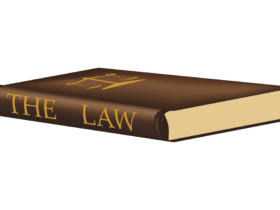Personal Injury Lawyer, Personal injury cases encompass legal disputes that arise when an individual suffers harm or injury due to the negligence, recklessness, or intentional actions of another party. These cases are a subset of civil law and are governed by laws that aim to provide compensation and justice to the injured party. Personal injury cases cover a broad range of incidents, each with its unique legal considerations.

Types of Personal Injury Cases
The following below are the Types of Personal Injury Cases
Car Accidents
Car accidents are one of the most common types of personal injury cases. They occur when individuals suffer injuries in motor vehicle collisions due to the negligence of another driver. Factors such as speeding, distracted driving, drunk driving, and failure to obey traffic laws can contribute to these accidents.
Slip and Fall Accidents
Slip and fall cases involve injuries that occur on someone else’s property due to hazardous conditions. Property owners or managers may be held liable if they fail to maintain safe premises, leading to slip and fall injuries.
Medical Malpractice
Medical malpractice cases arise when healthcare professionals or medical institutions provide substandard care that results in harm to patients. These cases can involve misdiagnosis, surgical errors, medication mistakes, and other medical negligence.
Product Liability
Product liability cases involve injuries caused by defective or dangerous products. Manufacturers, distributors, and sellers can be held responsible for injuries resulting from design defects, manufacturing defects, or inadequate warnings about a product’s risks.
Workplace Accidents
Workplace accidents occur when employees are injured while performing their job duties. Employers have a responsibility to provide safe working conditions, and when they fail to do so, injured employees may be entitled to compensation.
Dog Bites
Dog bite cases involve injuries caused by a dog’s aggressive behavior. Depending on the jurisdiction, dog owners can be held liable for injuries their pets inflict on others.
Intentional Torts
In addition to negligence-based cases, personal injury law also covers intentional torts. These cases involve intentional acts that cause harm, such as assault, battery, defamation, and intentional infliction of emotional distress.
Premises Liability
Premises liability cases extend beyond slip and fall accidents to cover a broader range of injuries that occur on someone’s property. This can include injuries caused by inadequate security measures, poor maintenance, or hazardous conditions.
Nursing Home Abuse
Nursing home abuse cases involve injuries suffered by elderly residents in nursing homes or care facilities due to neglect, abuse, or substandard care provided by staff members.
Construction Accidents
Construction site accidents can lead to severe injuries for workers and bystanders. These cases often involve complex legal considerations due to the involvement of multiple parties and potential violations of safety regulations.
Wrongful Death
Wrongful death cases arise when a person dies due to the negligence or intentional actions of another party. The deceased person’s family members or beneficiaries may pursue compensation for the loss of their loved one.
Catastrophic Injuries
Catastrophic injury cases involve severe, life-altering injuries such as traumatic brain injuries, spinal cord injuries, and severe burns. These injuries often lead to long-term medical treatment, rehabilitation, and significant lifestyle changes.
Each type of personal injury case involves distinct legal elements, evidence requirements, and potential challenges. Personal injury lawyers specialize in these cases to navigate the complexities of the law and help injured individuals seek compensation for their damages. Whether through negotiation, settlement, or trial, personal injury lawyers play a crucial role in advocating for the rights and interests of those who have suffered harm due to the actions of others.
What does a Personal Injury Lawyer Do.
In today’s complex and interconnected world, accidents and incidents leading to personal injuries are unfortunately common occurrences. Whether it’s a car accident, a slip and fall incident, a workplace mishap, or medical malpractice, these situations can result in physical, emotional, and financial distress for the victims. In such scenarios, the role of a personal injury lawyer becomes crucial.
A personal injury lawyer is a legal professional who specializes in advocating for individuals who have suffered harm due to the negligence or intentional actions of others. Their responsibilities encompass a wide range of tasks aimed at obtaining justice, compensation, and a sense of closure for their clients. This article delves into the multifaceted role of a personal injury lawyer, shedding light on their functions, skills, and significance in the realm of legal practice.
Legal Representation and Advocacy
One of the primary functions of a personal injury lawyer is to provide legal representation and advocacy on behalf of their clients who have sustained personal injuries. These injuries could result from various incidents such as automobile accidents, product defects, medical malpractice, workplace accidents, and more. The lawyer’s primary objective is to protect the rights and interests of their clients and ensure they receive fair compensation for the harm they have suffered.
The lawyer initiates the legal process by gathering evidence related to the incident, which may include accident reports, medical records, eyewitness testimonies, and expert opinions. They then use this evidence to build a strong case and present it to insurance companies, opposing legal counsel, or in a court of law if necessary. Their expertise in interpreting complex legal statutes and regulations enables them to navigate through intricate legal procedures and formalities, ensuring that their clients’ rights are upheld throughout the process.
Expertise in Negotiation and Settlement
A significant portion of personal injury cases is resolved through negotiation and settlement rather than through a full-fledged trial. Personal injury lawyers play a pivotal role in these negotiations, employing their negotiation skills to reach favorable settlements for their clients. They engage with insurance companies and opposing parties to arrive at a compensation amount that adequately covers medical expenses, lost wages, emotional distress, and other damages.
The ability to negotiate effectively requires a deep understanding of personal injury law, a keen analysis of the damages suffered by the client, and persuasive communication skills. Lawyers often leverage their knowledge of previous case outcomes and precedents to bolster their arguments during negotiations, ensuring their clients receive just compensation without the need for a protracted legal battle.
Litigation and Trial Representation
While settlements are preferred for their efficiency, some personal injury cases do proceed to trial. In such instances, the personal injury lawyer transitions from a negotiator to a trial attorney. They meticulously prepare their case by conducting thorough legal research, strategizing courtroom tactics, and ensuring all evidence is well-documented and organized.
During the trial, personal injury lawyers present their case before a judge and jury, cross-examine witnesses, argue legal points, and make compelling opening and closing statements. Their ability to convey complex legal concepts in a comprehensible manner is crucial in helping the judge and jury understand the nuances of the case. Personal injury lawyers’ courtroom expertise can significantly influence the outcome of the trial, as their advocacy skills and attention to detail can sway decisions in favor of their clients.
Providing Legal Counsel and Support
Beyond the legal proceedings, personal injury lawyers also provide essential legal counsel and emotional support to their clients. Suffering a personal injury can be an overwhelming experience, often leading to physical pain, emotional distress, and financial strain. Personal injury lawyers understand these challenges and aim to alleviate their clients’ burdens by offering guidance on legal options, potential outcomes, and the steps involved in pursuing a case.
This role of emotional support is often underestimated but crucial. Lawyers who can empathize with their clients and provide reassurance during difficult times contribute significantly to building trust and rapport. By acting as confidants and reliable sources of information, personal injury lawyers help clients make informed decisions about their cases and provide them with a sense of security as they navigate the legal process.
Collaborating with Experts
In many personal injury cases, technical and medical expertise is essential to establish the extent of the injuries and the impact they will have on the victim’s life. Personal injury lawyers collaborate with various experts such as medical professionals, accident reconstruction specialists, economists, and vocational rehabilitation experts to assess the damages suffered by their clients accurately.
Medical experts play a crucial role in establishing a causal link between the incident and the injuries sustained, while economists provide insights into the financial losses incurred due to medical bills, lost wages, and potential future expenses. Accident reconstruction specialists may be called upon to recreate the events leading to the injury, aiding in establishing liability. The lawyer’s ability to coordinate and leverage these expert opinions strengthens their case and supports their pursuit of fair compensation.
Contingency Fee Arrangements
Personal injury lawyers often work on a contingency fee basis, which means they are only compensated if they successfully recover compensation for their clients. This arrangement aligns the lawyer’s interests with the client’s, as both parties share the goal of obtaining a favorable outcome. This approach also makes legal representation accessible to individuals who might otherwise be unable to afford the high costs associated with legal proceedings.
However, it’s essential to note that the lawyer’s fee is typically a percentage of the compensation awarded to the client. This arrangement underscores the lawyer’s commitment to securing the best possible outcome for their client, as their own compensation is directly linked to the compensation obtained for the client.
Conclusion
In a world where personal injuries can disrupt lives and cause substantial harm, the role of a personal injury lawyer emerges as a beacon of hope and justice for those who have suffered. Their multifaceted responsibilities encompass legal representation, negotiation, trial advocacy, emotional support, and collaboration with experts. By leveraging their legal expertise and compassion, personal injury lawyers ensure that their clients’ rights are protected, their voices are heard, and they receive the compensation they deserve. In doing so, these legal professionals contribute to creating a more equitable and just society where victims of personal injuries can find solace and closure amidst their challenging circumstances.





